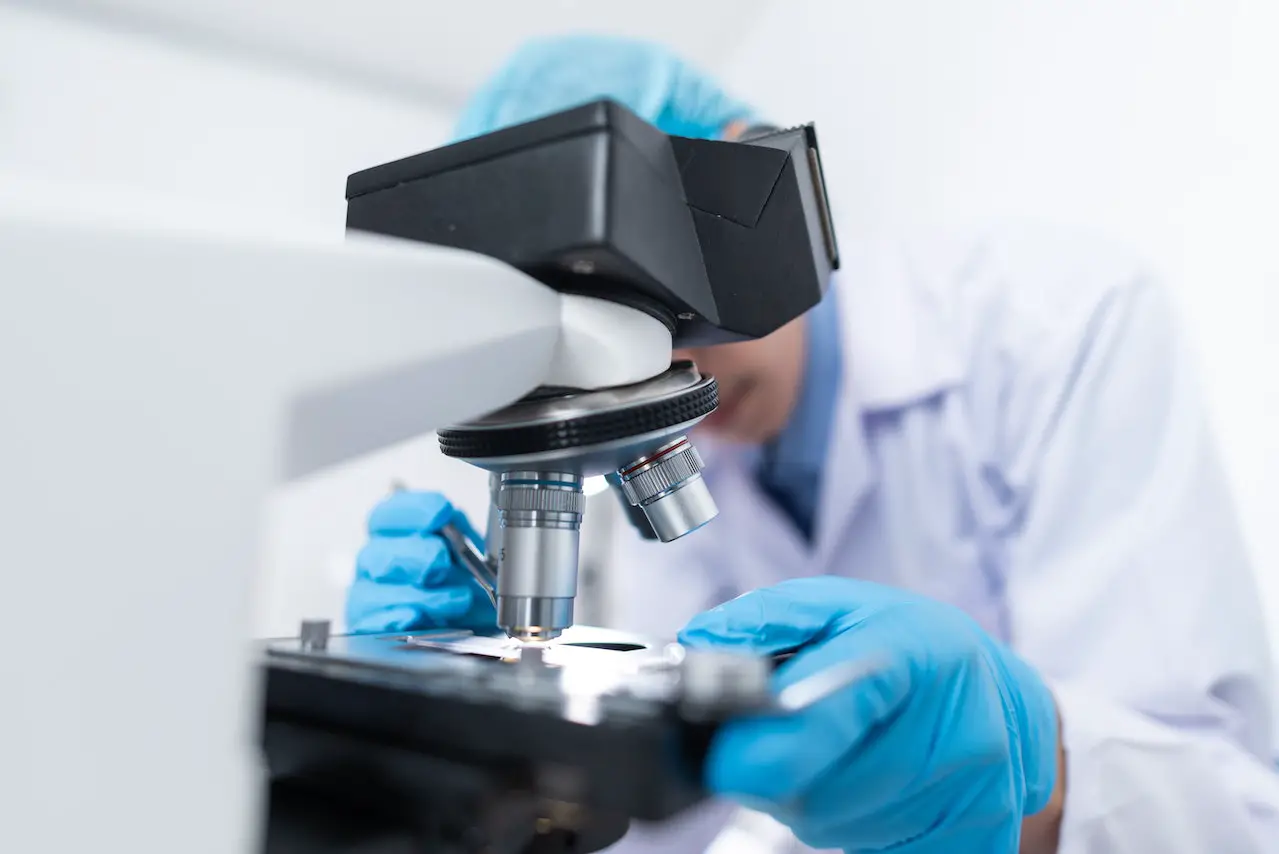Scientific thinking and research are integral to the advancement of human knowledge and understanding. Scientific thinking is a type of knowledge-seeking process that encompasses various cognitive aspects such as asking questions, testing hypotheses, making observations, recognizing patterns, and making inferences 1. This process goes beyond mere facts and figures; it involves critical thinking, problem-solving, and creativity, which contribute to scientific discovery and innovation.
Moreover, research in the sciences serves as a practical application of scientific thinking, focusing on systematically investigating the natural world to extend, correct, or confirm existing scientific knowledge. The scientific method, which forms the core of scientific research, entails designing experiments, collecting and analyzing data, and drawing conclusions based on empirical evidence. This rigorous approach increases the likelihood of generating accurate, unbiased, and reliable findings across various scientific disciplines.
Key Takeaways
- Scientific thinking involves critical thinking and problem-solving skills to advance human knowledge.
- Research in the sciences applies scientific thinking through the systematic investigation of the natural world.
- Combining scientific thinking and research leads to accurate, unbiased, and reliable findings in different disciplines.
Principles of Scientific Thinking
Observation and Experiment
Scientific thinking begins with the observation of the natural world and the phenomena occurring around us. Through observation, scientists gather data and gain insights into how things work. To better understand these phenomena, scientists often design and conduct experiments. Controlled experiments allow them to isolate variables, manipulate conditions, and analyze the effects of these manipulations on the outcomes.
Hypothesis and Testing
A central aspect of scientific thinking involves formulating hypotheses. A hypothesis is a testable statement or question based on prior knowledge, observations, and evidence. Once a hypothesis is established, scientists use various methods to test its validity. Testing hypotheses is crucial in refining scientific knowledge and can involve experimentation, conducting case studies, or analyzing existing data. This step incorporates critical thinking and evaluation of the evidence in order to ascertain if the hypothesis holds true or needs further investigation.
Induction and Deduction
Inductive and deductive reasoning are key components of scientific thinking. Induction involves drawing general conclusions from specific observations. For example, a researcher might observe patterns in the data and use these patterns to make broader predictions about a phenomenon. On the other hand, deduction involves applying general principles to specific cases. In deduction, a scientist might start with a broader theory and then test it by making predictions about what should happen in particular situations. Both forms of reasoning help scientists develop theories and models that explain the world around them and allow them to assess the validity of hypotheses.
Scientific Theories
Scientific theories are well-substantiated explanations of some aspect of the natural world. They are the result of rigorous testing, refinement, and a convergence of evidence from multiple sources. A robust scientific theory should be falsifiable, meaning it can be potentially disproven through further experimentation or analysis. The process of developing and refining theories is ongoing, and as new evidence emerges, theories may be adjusted or replaced. Thomas Kuhn’s concept of scientific revolutions highlights how scientific theories can undergo significant shifts based on new insights and perspectives.
Internalizing the principles of scientific thinking enables individuals to evaluate the evidence and uncertainty in various situations, apply critical thinking skills, and develop a deeper understanding of the world and its intricate workings.
Scientific Research
Authorship and Articles
Scientific research involves the process of generating new knowledge and understanding by following a systematic approach. When researchers work on a problem, they publish their findings in the form of articles. These articles are authored by researchers and include the details of the study, the results obtained, and the analysis of the data. Publishing research articles allows other scientists to build upon the findings and advance the field of knowledge.
Experimental Methods
Effective experimental methods are crucial in conducting scientific research. Researchers use various experimental designs and techniques to investigate hypotheses, test theories, and obtain accurate and replicable results. Some common experimental methods include controlled experiments, field experiments, and natural experiments. These experiments help to establish causal relationships between variables and provide valuable information for problem-solving and advancing scientific knowledge.
Case Studies
In some situations, researchers may choose to conduct case studies as part of their research process. Case studies involve an in-depth examination of a particular event, phenomenon, or individual. They provide detailed information on specific instances, allowing researchers to gain a deeper understanding of complex phenomena and identify patterns that may be overlooked in broader studies. While case studies cannot establish causal relationships, they offer valuable insights into real-world situations and can be a valuable complement to other research approaches.
Scientific Argumentation
Scientific argumentation is a critical aspect of the research process, as it enables researchers to communicate their findings, defend their conclusions, and engage in constructive debates. It is essential for researchers to present their arguments clearly and systematically, avoiding confusion and ambiguity. A strong scientific argument consists of a well-structured, evidence-based reasoning that logically connects the premises and conclusions. Through scientific argumentation, researchers contribute to the ongoing dialogue in their field, fostering the development and refinement of theories and ideas.
Importance of Scientific Thinking in Education
Children’s Cognitive Development
Scientific thinking plays a crucial role in children’s cognitive development. By engaging in learning processes such as observation, reflection, and motivation, children enhance their critical thinking and problem-solving abilities. Through these processes, they learn to make sense of the world and understand complex concepts. It has been shown that the use of scientific thinking contributes significantly to young children’s development.
Incorporating scientific thinking into early education helps children progress into adulthood with a solid foundation in evidence-based decision-making. A strong emphasis on the scientific method in science education equips children with tools to combat the spread of misinformation and pseudoscience. As a result, an educated population can better understand the significance of scientific advancements and their applications to everyday life.
Teaching Science
The methods used in teaching science have evolved to ensure students develop a deep understanding of the subject. An approach based on constructivism fosters active learning and allows students to construct their knowledge through experiences and reflection. This method is particularly effective for middle school science education, where students can leverage their prior knowledge and engage in hands-on experiments.
Teachers play a vital role in nurturing scientific thinking and encouraging students to question, analyze, and interpret data. Providing activities and environments that promote collaboration among peers can also enhance the development of 21st-century skills like teamwork, communication, and adaptability. As science education continues to evolve and improve, the significance of critical thinking in the field becomes increasingly apparent.
Addressing the importance of scientific thinking in education, educators, and researchers must work together to implement effective strategies and curricula. By fostering students’ scientific thinking abilities, educators pave the way for a generation prepared to tackle complex problems and contribute positively to society’s progress.
Scientific Thinking in Different Disciplines
Scientific thinking is a crucial aspect of many disciplines, as it allows for systematic inquiry and the acquisition of new knowledge. This section explores how scientific thinking manifests in three specific disciplines: psychology and creativity, engineering and problem solving, and philosophy and critical thinking.
Psychology and Creativity
In the field of psychology, scientific thinking focuses on understanding the human mind and its processes. Psychologists employ a variety of methodologies to develop and test hypotheses, often through experiments or observations of human behavior. A key aspect of scientific thinking in psychology involves creativity and curiosity, as researchers must be open to new ideas and novel ways of interpreting data. Embracing creativity enables psychologists to develop innovative theories, experimental designs, and therapeutic interventions, ultimately contributing to the advancement of the field [^1^].
Engineering and Problem Solving
Engineering is another discipline where scientific thinking is essential, as it relies on systematic, evidence-based approaches to solve complex problems. Engineers use their expertise in various fields like mechanical, electrical, and civil engineering, combined with critical thinking skills, to design, build, and maintain infrastructure and machinery. Problem-solving abilities are vital in engineering, as they enable engineers to identify challenges, evaluate potential solutions, and optimize designs for performance, sustainability, and cost-effectiveness. In this discipline, scientific thinking is directly applied to real-world challenges, enhancing the functionality of our society and the built environment [^2^].
Philosophy and Critical Thinking
Scientific thinking is also influential in the discipline of philosophy, as it encourages rigorous analysis and critical evaluation of ideas. Philosophers examine concepts, principles, and theories related to a wide range of areas, such as ethics, metaphysics, and epistemology. Through their work, they aim to improve our understanding of the world and inform the development of ethical and practical guidelines for personal conduct and decision-making. Scientific thinking in philosophy often involves critical thinking and logical reasoning, allowing philosophers to assess the validity of arguments, identify underlying assumptions, and uncover inconsistencies or fallacies in philosophical debates [^3^].
In each of these disciplines, scientific thinking plays a significant role in shaping the investigative methods, analytical approaches, and intellectual development of their respective fields. By fostering curiosity, creativity, critical thinking, and problem-solving, scientific thinking drives progress and innovation across a diverse spectrum of academic and professional pursuits.
Assessing Scientific Thinking
Assessing scientific thinking involves evaluating a person’s ability to reason, question beliefs, and maintain an open-minded attitude when exploring complex concepts. It is crucial to develop methods to evaluate one’s scientific thinking skills, as they play a significant role in understanding scientific principles and contribute to an individual’s overall scientific literacy.
Several assessment methods are applied to gauge scientific thinking. One common method includes analyzing a person’s ability to make inductive and deductive reasoning when presented with scientific information. Inductive reasoning involves making general conclusions based on specific observations, while deductive reasoning entails using established principles to evaluate and predict outcomes. By analyzing an individual’s ability to make logical inferences and predictions, educators can evaluate their scientific thinking skills.
Another important aspect to assess is an individual’s beliefs. When faced with contrasting ideas and theories, it is crucial for a person to evaluate their beliefs, weigh the evidence, and adopt a theory-evidence coordination approach. This method encourages the balance between existing beliefs and newly acquired information, allowing for a comprehensive understanding of scientific concepts.
To foster open-mindedness, assessments can evaluate a person’s capacity to consider multiple perspectives and alternate explanations. Asking individuals to compare and contrast different scientific theories, recognize patterns, and make connections between unrelated concepts can help in measuring their flexibility in thinking.
Furthermore, the ability to design and conduct experiments reflects strong scientific thinking. Assessing an individual’s experimental skills, such as formulating hypotheses, selecting appropriate variables, and interpreting results, can provide valuable insight into their overall scientific thinking abilities.
In summary, assessing scientific thinking requires a multifaceted approach, considering an individual’s reasoning, beliefs, open-mindedness, and experimental capabilities. By developing effective methods to evaluate scientific thinking skills, educators can help individuals to become confident, knowledgeable, and adept at understanding complex scientific concepts.
Fundamental Concepts in Science
Force and Energy
Force and energy are fundamental concepts in the development of science. Force is a push or a pull that causes an object with mass to accelerate or change its motion, while energy is the ability to do work, such as moving an object or causing it to change its state. Exploration of these concepts has led to various predictions and conjectures, often guided by the scientific method.
Scientific curiosity has driven researchers to investigate the interaction between force and energy, leading to the discovery of numerous natural laws and phenomena. For example, Johannes Kepler’s work on planetary motion was instrumental in understanding the relationship between gravitational force and energy.
Equilibrium and Magnetism
Equilibrium is a state in which opposing forces or actions are balanced, resulting in a stable system. Magnetism, on the other hand, is a force that acts upon charged particles, causing a mutual attraction or repulsion between them. These concepts have a pervasive presence in the scientific world, as they govern a wide range of phenomena.
The study of equilibrium and magnetism has prompted scientists to make numerous observations and develop theories to help explain various anomalies. For instance, magnetism plays a crucial role in understanding the behavior of electrical currents and the way they interact with magnetic fields.
Atoms and the Universe
Atoms are the basic building blocks of matter, and their study is essential for comprehending the composition and structure of the universe. Scientific thinking has enabled researchers to delve deeper into the nature of atoms, leading to several important discoveries.
Atoms consist of a nucleus, which contains protons and neutrons, and electrons that orbit the nucleus. Understanding the internal structure and behavior of atoms has been crucial in advancing our knowledge of the universe and its origins.
The scientific method, characterized by observation, experimentation, and hypothesis testing, has been essential in the study of atoms and the universe. It has allowed researchers to make accurate predictions and refine our understanding of fundamental forces and particles.
Frequently Asked Questions
What are the main characteristics of scientific research?
Scientific research is characterized by systematic investigation, empirical evidence, objectivity, and replicability. It aims to understand and predict natural phenomena through the application of the scientific method, which involves observing, hypothesizing, experimenting, and analyzing data. The research should be transparent, and the results must be open to peer review.
Can you provide examples of scientific thinking in everyday life?
Scientific thinking can be applied to everyday situations, such as problem-solving, decision-making, and evaluating information. For example, when you notice your plants are not thriving, you may hypothesize that they need more sunlight or water. You can then design an experiment by altering the amount of light or water, and monitor the results. This process mirrors the scientific method in everyday life.
How can one develop scientific thinking skills?
Developing scientific thinking skills requires practice, curiosity, and openness to new ideas. Engaging in activities such as critical reading, observation, and data analysis is essential to cultivate these skills. You can try to:
- Ask meaningful questions that can be investigated empirically
- Analyze information critically – evaluate the credibility of sources and the validity of the arguments
- Familiarize yourself with scientific concepts to understand the underlying principles
- Design and conduct experiments, analyze the results, and draw conclusions based on the evidence
- Be open to changing your mind when presented with new evidence
What are the different types of scientific thinking?
Different types of scientific thinking include inductive reasoning, deductive reasoning, and abductive reasoning.
- Inductive reasoning involves drawing general conclusions from specific observations. For example, you might notice that birds fly and conclude that all birds can fly.
- Deductive reasoning is the process of drawing logical conclusions from previously established facts. For example, knowing that mammals have hair and that cats are mammals, you deduce that cats have hair.
- Abductive reasoning involves forming a hypothesis to explain observed data or phenomena that are not entirely understood in the existing theories.
What are the three principles of scientific thinking?
The three principles of scientific thinking are empiricism, parsimony, and comprehensiveness.
- Empiricism emphasizes the importance of observational data and the critical examination of evidence when forming knowledge and understanding.
- Parsimony is the principle of selecting the simplest explanation that accurately accounts for the observed data or phenomena.
- Comprehensiveness refers to the quality of a theory or explanation that can account for all, or most, of the available evidence and data.
What are the five steps of the scientific thinking process?
The steps of the scientific thinking process are:
- Asking a question: Identify a problem or phenomenon that can be investigated.
- Conducting background research: Study existing literature and research on the topic to better understand it and identify possible explanations.
- Developing a hypothesis: Formulate a testable statement or prediction based on your research.
- Designing and carrying out an experiment: Develop a procedure to test the hypothesis, collect data, and analyze the results.
- Drawing conclusions: Determine whether the data supports the hypothesis, and consider the implications of the findings for further research.





